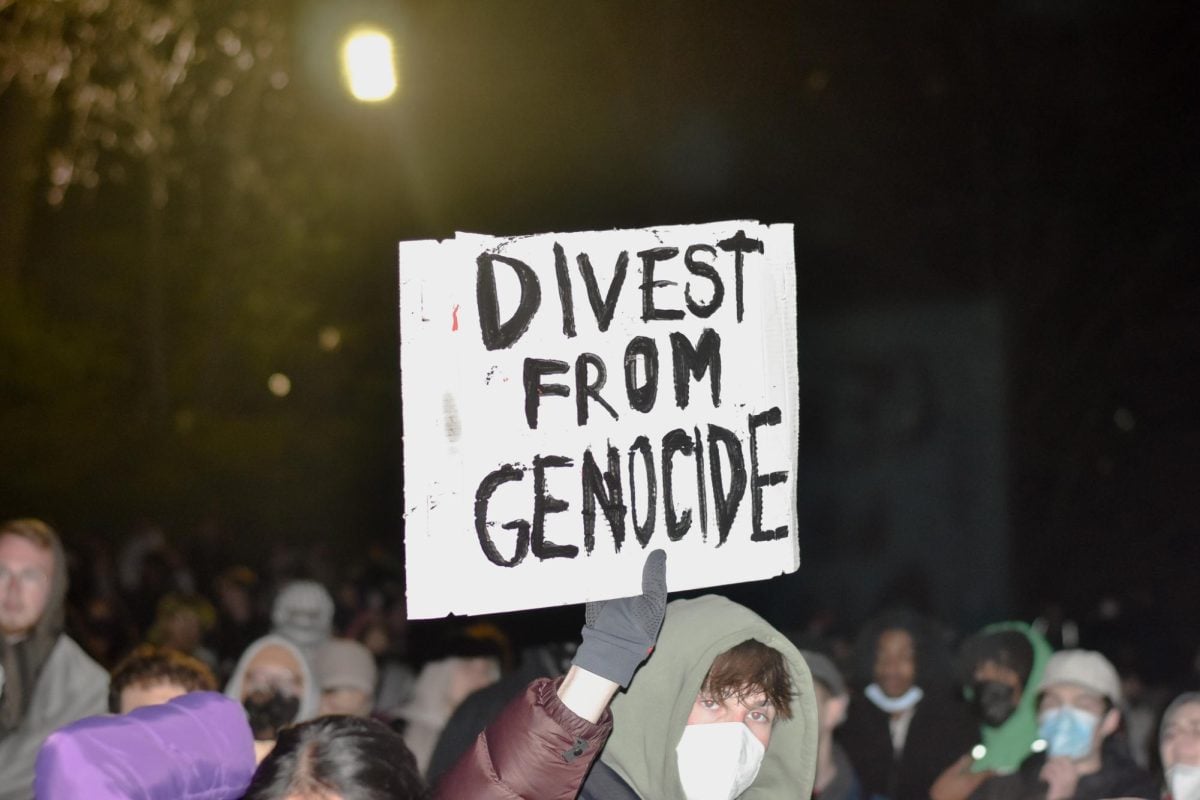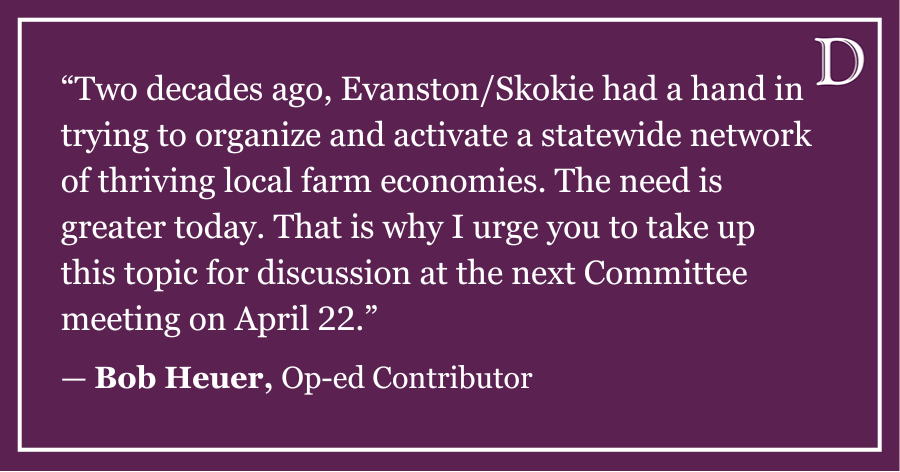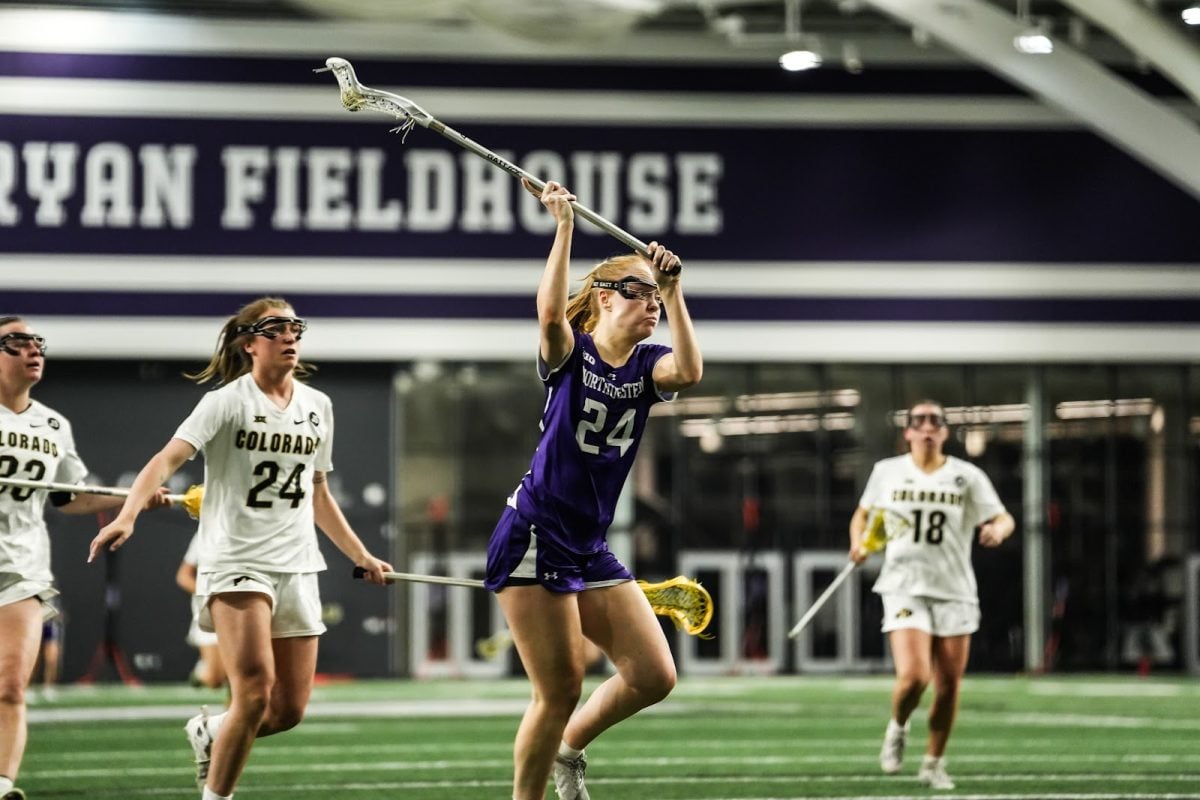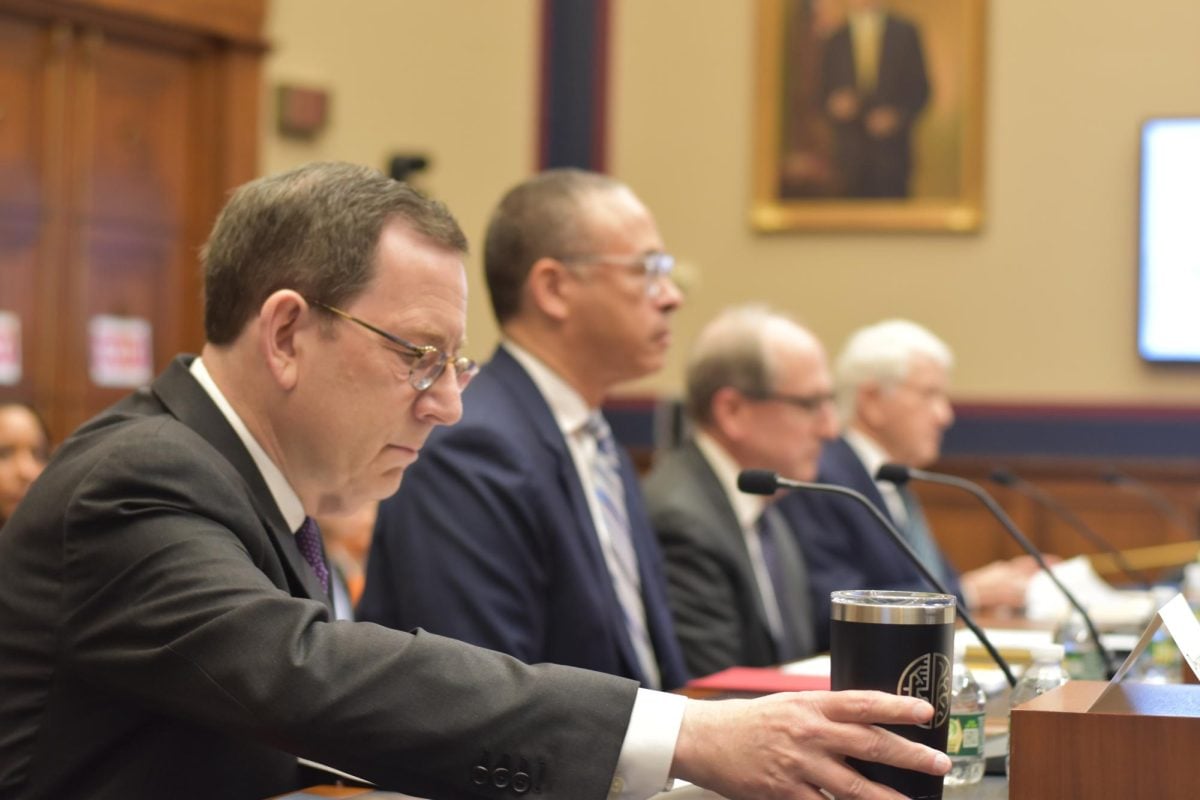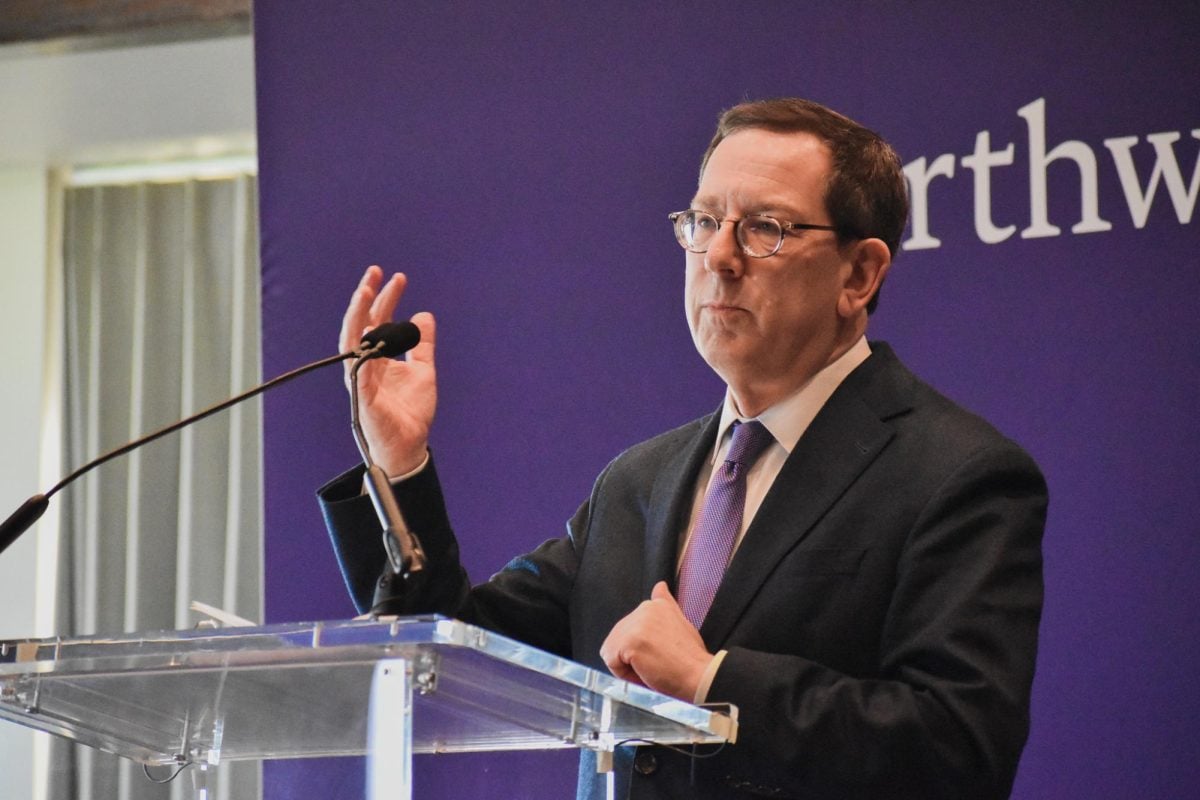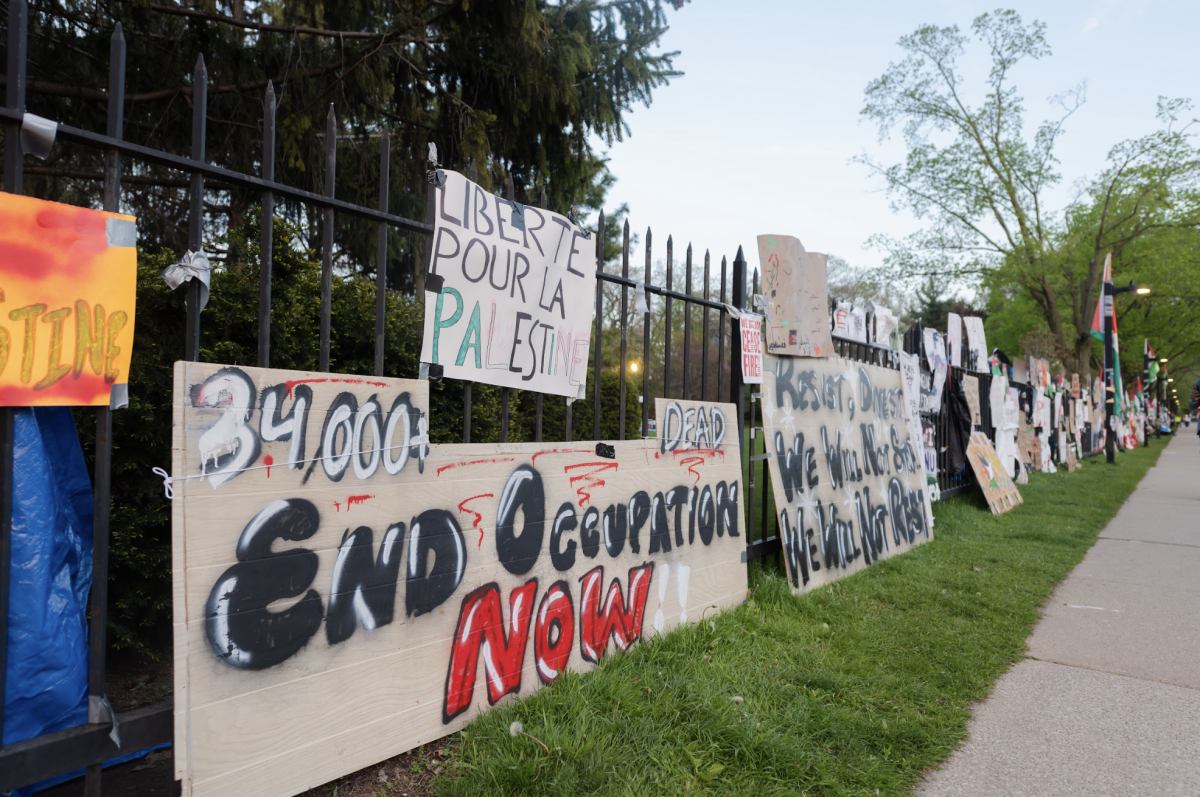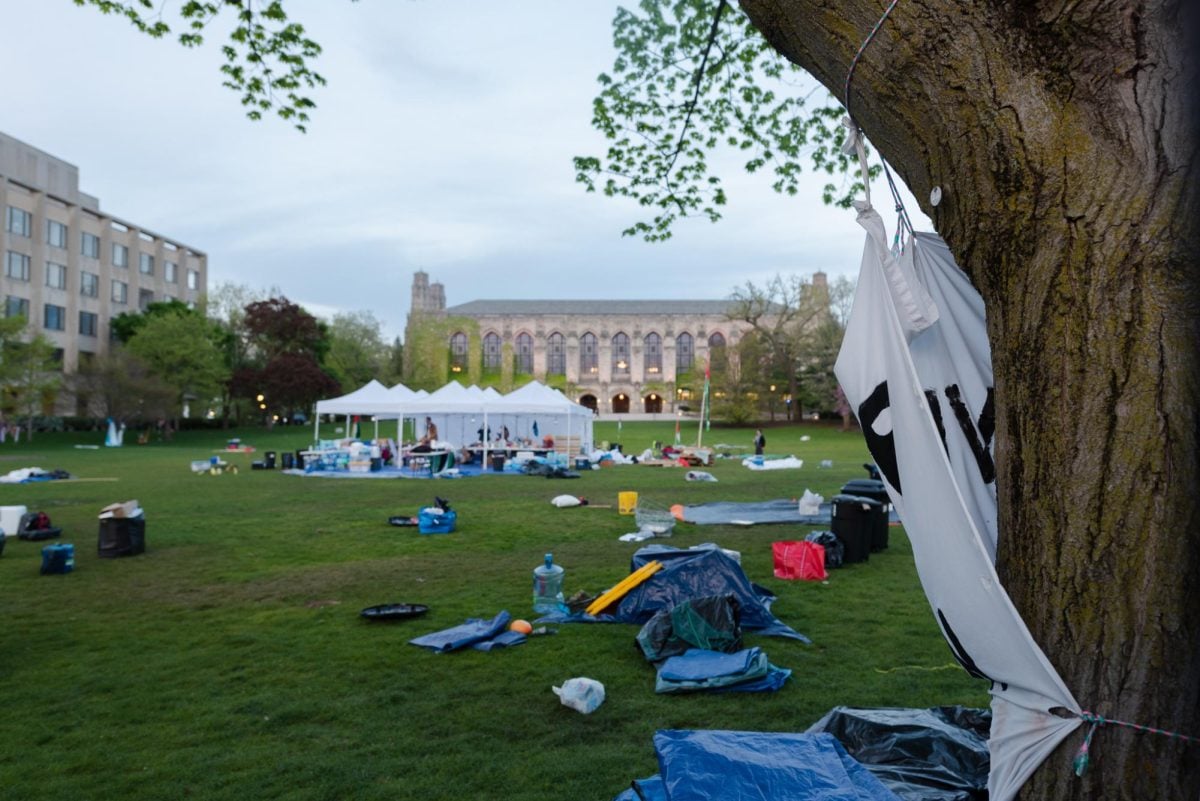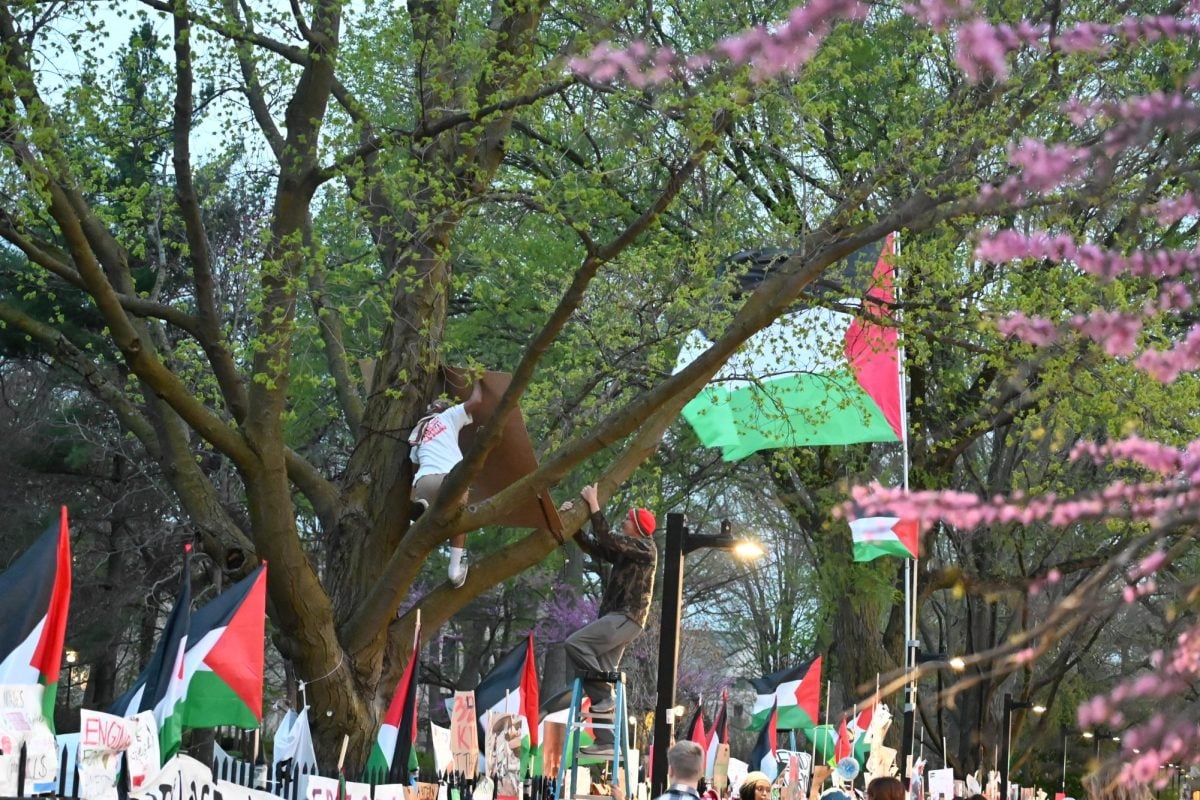For organizers of the ongoing encampment on Deering Meadow, a primary demand is for the University to disclose its investments and divest from companies that supply arms to Israel.
Northwestern’s endowment, which stood at $13.7 billion at the end of Fiscal Year 2023, makes it one of the wealthiest universities in the nation. Returns on invested endowment money account for a significant portion of the University’s operating budget.
Yet, like most other American higher education institutions, NU does not disclose what it’s invested in.
This has long been a point of concern for student activists. For decades, NU community members have demanded divestment as part of protests against a range of issues, such as South African apartheid and the fossil fuel industry’s contributions to climate change.
Now, students, faculty and community members are calling on the University to “divest from war and apartheid,” according to the NU People’s Resolution circulated by NU’s chapters of Students for Justice in Palestine, Jewish Voice for Peace and Educators for Justice in Palestine. Organizers said Thursday that they will remain on Deering Meadow until the University responds to the three main demands laid out in this statement, one of which is divestment from Israel-affiliated institutions.
With pressure for divestment mounting, here’s what we know about NU’s policy on investments.
Third parties manage investments under trustee guidance
Members of the University’s Investment Office, as well as members of the Investment Committee of the Board of Trustees, are in charge of determining what companies the University invests in. The members of this committee are not listed on the University’s website.
According to NU’s most recent financial report, the Investment Office analyzes current market conditions to determine which investments are most likely to be profitable for the University. Like other universities, NU uses its return on investments to supplement its revenue. In 2023, $481 million in investment returns went into the University’s operating budget, comprising 15.8% of the budget.
NU also commits considerable financial resources toward sustaining its Investment Office. A 2023 NU Graduate Workers analysis estimated that NU spends $100 million annually on investment management.
And, as of 2022, three of the University’s ten highest-paid employees were from the Investment Office, according to the same NUGW report.
Over the past few years, the Investment Office has released two statements from the Board of Trustees. In 2019, a statement on “investment responsibility” detailed how the office balances “ethical, political and social concerns” with its financial goals.
According to this statement, “the Investment Office selects qualified third-party investment managers who then make, hold, and subsequently sell specific investments on behalf of the Endowment.”
A second statement, released June 2022, outlined policies on investing in fossil fuels, stating that the University would “divest as possible” from energy companies identified as having “poor practices” in fossil fuel emission reduction.
“Any constraints on investment activities have the potential to reduce long-term returns. As such, the Board remains committed to the principle of enacting only those policies which it believes are both urgently important and highly likely to result in real as opposed to symbolic change,” the June 2022 statement reads.
Board of Trustees maintains “impartiality” for investments
Several members of the Board of Trustees are either current or former employees of companies and organizations that have pledged aid or sold arms to Israel, including Blackstone, Boeing and General Dynamics.
Though none of these board members have outwardly stated their position on the current war in Gaza, the board’s past and present ties to Israel have sparked concern among some students that the University may be investing in defense contractors.
“The Northwestern administration chooses to hide its direct and managed investments, failing its own commitments to transparency and accountability,” community activists from NU SJP, JVP and EJP wrote in the NU People’s Resolution. “Students, faculty, staff, and other stewards of the university’s success ask that our tuition, labor, care, and trust not be misused to enrich institutions and companies that support and maintain apartheid, occupation, and the oppression of the Palestinian people.”
In its 2019 and 2022 statements on investment policy, the Board of Trustees maintained that it does not take political or ideological considerations into account when making investment decisions.
“The University, as an impartial institution, does not generally take positions on specific political or social issues,” the 2019 statement reads. “Similarly, the Trustees do not believe the Endowment should be used as a tool to further specific political or social positions or agendas. The Trustees believe the principal role of the Endowment is to provide the financial support the University requires to carry out its mission now and in the future.”

